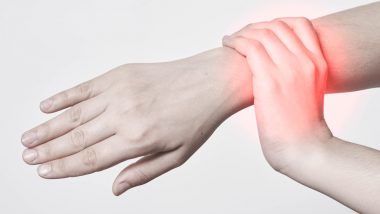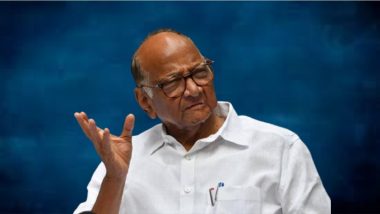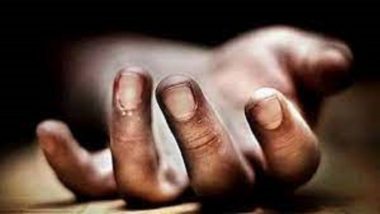Mumbai, August 24: An alarming surge has hit Mumbai City in cases of Guillain-Barre syndrome (GBS), an uncommon autoimmune neurological disorder where the body's immune system targets the peripheral nervous system. Reports indicate that this surge in GBS cases is between 30% to 50% higher than the usual numbers experienced during the monsoon season when GBS cases tend to increase slightly. Multiple reports show that outpatient and hospital admissions have witnessed a significant rise in GBS incidents.
In a striking example, BYL Nair Hospital, a civic-run facility, has treated over 15 GBS cases in just a month, with six patients currently undergoing treatment. Similarly, private hospitals like Kokilaben Hospital in Andheri and Bhatia Hospital in Tardeo have each managed over a dozen cases since July. Other medical institutions, including Fortis and Lilavati hospitals, are currently attending to three to five GBS patients each. Fortunately, no fatalities have been reported from these hospitals. The cause behind this surge remains unclear, but medical professionals suspect a potential connection to an overall increase in viral infections. What Is Guillain-Barre Syndrome? From Symptoms to Causes and Treatment, Here's Everything About Rare Neurological Disorder That Has Triggered National Emergency in Peru.
According to multiple reports, Dr Rahul Chakor, head of Nair Hospital's neurology department, noted that nearly all GBS patients he treated had developed the condition shortly after recovering from viral or gastrointestinal infections. This spike in cases has affected people of all ages and genders. GBS typically emerges due to viral or bacterial infections, leading the immune system to attack the body erroneously. The disorder manifests as muscle weakness, numbness, and tingling, potentially progressing to paralysis, necessitating extended recovery periods. BMC COVID-19 Centres Scam: Case Registered Against Ex-Mumbai Mayor Kishori Pednekar, Two Others.
This recent upsurge has been particularly noticeable in the past 30 to 45 days, with Bhatia Hospital's Dr Ashish Gosar observing that many patients with GBS had also recently travelled. Medical experts have identified various forms of GBS, some of which show atypical presentations. Younger patients with early cranial nerve involvement and upper limb issues are progressing swiftly, requiring ventilatory support due to weakened respiratory muscles.
In Fortis Hiranandani, Director of Neurology Dr Pawan Ojha stated that they are treating four critical patients, two with Acute Inflammatory Demyelinating Polyneuropathy (AIDP) and two with severe Acute Motor Axonal Neuropathy (AMAN). While most GBS patients complain of weakness, tickling, and numbness, Dr Tushar Raut of Kokilaben Ambani Hospital emphasises the importance of closely monitoring suspected GBS cases for vital signs.
Despite the costs of treatment in private hospitals reaching lakhs of rupees, many patients have achieved full recovery. Dr Chakor suggested that the post-pandemic surge in autoimmune conditions could be linked to COVID-19, prompting a need for further research to ascertain any connection to GBS.
(The above story first appeared on LatestLY on Aug 24, 2023 01:44 PM IST. For more news and updates on politics, world, sports, entertainment and lifestyle, log on to our website latestly.com).













 Quickly
Quickly





















